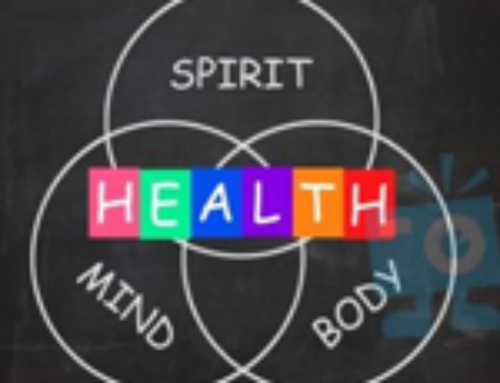When I was a little girl, I remember putting rolled up socks in my undershirt to create the “breasts” that a mommy has. This made playing house that much more authentic. Although it was hard to recruit the little boys in the neighborhood to join in, it was not impossible. Yet their resistance was not a statement about not wanting to be a father some day, but rather that the game itself didn’t resonate with a young boy’s typical need for more rigorous physical activity in play than females.
Reproduction is germane to being alive, human or otherwise. It sometimes seems that you are surrounded by babies: birds, bees, dogs, sloths, and more galling than anything, your friends or neighbors who aren’t sure that they want a baby but find themselves pregnant by accident. And as the cynical expression goes, you’re born, you grow up, you pay taxes, you reproduce, and you die. That is, everyone and everything reproduces but you. There is only one word to describe the infertility experience: agony.
So many articles on infertility lay out all of the feelings that cascade from the situation, and conclude with a statement about feeling out of control. To me, the centerpiece of this emotional agony is feeling out of control. The one thing that you long for the most, you cannot have. Whether this creates (a normative, but arduous) anxiety for you, or depression, marital imbalance, or friction in the family, the workplace or in friendships, these symptoms take a back seat to the sometimes protracted amount of time that resolution of the infertility struggle can take. And the bottom line of that results in the feeling of being painfully out of control with no end in sight.
Now add to this Mother’s Day and Father’s Day. This is an emotional ordeal because parenthood is what you want so much for yourself. It can be even more painful if you either want to or are expected to honor your parent in a setting which is a gathering of siblings, in-laws and maybe “out-laws” who show up with their babies, toddlers and/or bellies.
I take the position that in your circumstances, you need to be protected from the salt that would unwittingly be rubbed in your wound by people who might very well want the best for you, but do not have the emotional sophistication to access from within them what sensitivity you need from them. Or they may have no awareness of the need for sensitivity because you haven’t shared the struggle with them, probably for some very good reason. Given all of this, what form does protection take?
Sometimes, protection means simply not showing up. As a young couple, you might not have the clarity or the experience of setting boundaries around yourselves as “a couple”, free to and entitled to write your own script according to your needs. This takes a willingness to be straightforward and expect those who love you to respect your decision. It doesn’t mean that you do not honor or love your parent; it does mean that Mother’s day and Father’s day is an arbitrary social declaration. You can arrange for a private time with each mother and father and bypass the hoopla that is more a boon to Hallmark than anything else. In a more realistic world, any day or every day can be mother’s/father’s day.
But protection can mean something else, exemplified in this story. I recently had a conversation with a woman who was in one of the mind/body support groups that I run for New York City RESOLVE, a national organization that provides advocacy, educational seminars and support of all kinds for infertility patients. She called to tell me that she was pregnant. Among other things, I asked her if the experience of having been in the group last year had made a difference. She said, “Absolutely!” I asked how. She said that what she learned from me and the whole gestalt of the group experience “gave her the stamina to just keep going.”
The strength implied in the word stamina is very important when it comes to coping with stress. And no one would debate that infertility ranks way up there in the stress department. Every one wants life to be easy. It isn’t. Everyone wants safety and stability. This is a sensible goal, but a more sensible goal is to expect the unexpected which can ruin the best laid plans. But if you have stamina, you’ve got most of what you need in this unpredictable world. No doubt you never predicted that you would be dealing with infertility.
There are all kinds of strength, all valuable. The stamina to “pull up your socks and get on with it” figures in heavily in the “job” of bringing the fertility struggle to resolution by whatever means. This kind of strength protects you from giving up too soon. If my patient hadn’t forged ahead, her doctor never would have discovered the heretofore undiagnosed disorder that, when corrected, yielded a pregnancy the next month.
Another kind of strength surpasses all others as far as I am concerned. It is the inner strength of self-esteem.
This is easier said than done. We all have wounds from our early years to a greater or lesser degree. These wounds handicap us a little or a lot in the formation of a healthy sense of assertiveness, entitlement, ability to communicate, ability to relax, to know what we feel, to see things clearly, and to take on challenges without feeling victimized. Infertility is so demanding that however emotionally healthy we may have been before, now we need every ounce of inner strength we can muster to navigate the process successfully.
The good news is that however you may have been handicapped, and however infertility throws your need for emotional growth into high relief, you may be one of those people/couples who come out of the experience stronger. Any aspect of self-esteem or inner strength that is needed is a skill which can be learned, practiced and integrated.
The challenge of infertility is raised exponentially at certain times, Mother’s Day and Father’s Day among them. It is highly recommended that rather than getting lost in your grief and upset, take it as an opportunity to get a panoramic view (best accomplished with a seasoned therapist) of what skills you and your partner need to develop or enhance so that you can be among those who come out of the experience with both a family and a clearer sense of your strength and capacities.
H







